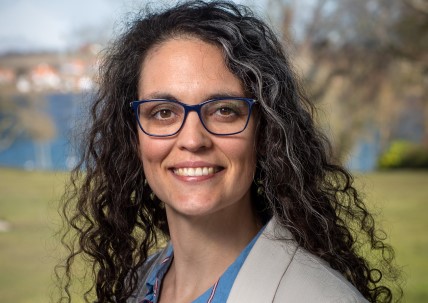María Sofía Espejo - Postdoctoral Fellowship 2021
Project summary:
Targeting a receptor for bicarbonate can protect against cardiovascular disease
Inadequate oxygen delivery in Ischemic Heart Disease causes acid-base disturbances, and in particular lowers the concentration of the buffer bicarbonate (HCO3–). RPTPγ is a novel HCO3– sensor and membrane receptor present in coronary arteries and on immune cells. It is the hypothesis of the current project that RPTPγ improves cardiac perfusion and protects against heart failure. María Sofía Espejo’s goal in her postdoctoral research is to evaluate RPTPγ as target for the treatment of ischemic heart disease and heart failure.
Project Title
Bicarbonate sensing via RPTPγ improves cardiac perfusion, limits inflammation, and protects against heart failure development
Background
Bicarbonate (HCO3–) is part of the most important physiological buffer system and changes in its concentration inform about physiological as well as disease processes in our bodies. These variations can be sensed by a novel receptor (RPTPγ) in the wall of coronary arteries and by immune cells. We propose that sensing of HCO3– optimizes cardiac perfusion and limits inflammation, thereby protecting against cardiac ischemia and heart failure development. Furthermore, the extracellular domain of RPTPγ is accessible for pharmacological targeting.
Aim
It is the aim of my project to provide proof-of-principle that targeting RPTPγ has cardiovascular therapeutic potential.
Methods
We will study a model of in vivo ischemia reperfusion damage in mice with tissue-specific disruption of RPTPγ (vascular and immune system). We will study cardiac dysfunction, consequences for arteries and papillary muscles ex vivo, and the infiltration of immune cells and RNA profile changes by -omics. The studies will give support to RPTPγ as a target for preventing heart failure. If successful, these investigations will guide future work including the development of molecules that can modify RPTPγ activity and improve cardiac prognosis.

María Sofía Espejo
- M.Sc. in Biotechnology, PhD in Biology.
- Aarhus University, Department of Biomedicine
Mentors:
Professor Ebbe Bødtkjer, Department of Biomedicine and Clinical Professor Henrik Wiggers, Department of Clinical Medicine, Aarhus University.
Partners:
-
Prof. Kai Kaila, Neuroscience Centre, University of Helsinki. A planned visit to Professor Kai Kaila’s laboratory to be instructed in the use of microelectrodes to measure tissue O2, CO2, and pH in vivo.
- Prof. Paul Riley, Department of Physiology, Anatomy and Genetics, University of Oxford. Collaboration to adapt the LAD ligation technique to the project model.